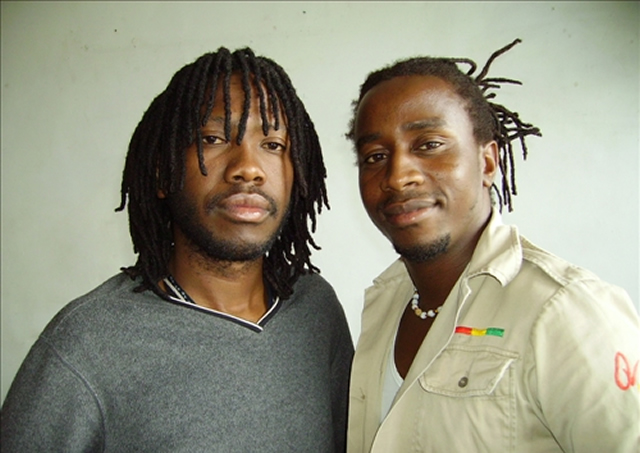Limitations of spiritually-themed music

Stanely Mushava Christian Entertainment
The spiritual implications of music are prone to provoke debate in our day than any other stage of Christian history. On one hand, the line between gospel and secular entertainment has become wafer-thin as the former freely taps from the latter.On the other hand, secular artistes have, at various points, tapped into spiritual mode to give a mystic angle to social problems in songs which entreat God as much as gospel songs.
On the extreme end, a growing range of songs by popular artists, especially youth icons in hip-hop and other urban contemporary domains has been branded satanic, in some instances with the lyrics seemingly out to proclaim that position. Christian Entertainment looks at these problems against a normative understanding of what should constitute gospel music.
Zimbabwe in particular has had many songs which reference God from predominantly secular artists.
Sungura, perhaps more than any other genre, has solicited God’s response to the problems under deliberation in the songs, notably poverty, moral decadence and death.
Urban grooves artists have not been far behind as God is tagged into many love songs, albeit as the sub-character, for creating the feminine target of praise in the song or for match-making.
Dancehall chanters are different as they predominantly promote wickedness, particularly drugs and illicit sex, self-idolise, chant down selected forms of “badness and slackness” and purport to praise most high Jah in the same breath. It is not uncommon to observe a dancehall artist romping to ghetto acclamation on the back of obscene and profane lyrics only to attribute his success to Jah.
The same Jah who says, through James, that fresh and salt water do not spring from the same source and commands Zion to be holy as he is holy? To this I do not return silence but loud and clear reproof against the perpetuation of idolatry. These artists are not praising God but creating a god in their own image – a god they can bend to their ungodliness, adapt to their weaknesses and sell to equally compromised audiences.
It is even more positively dangerous to fall for double agents like R Kelly who can give the most faultless inspirational music at one moment only to spew the filthiest gutter content the next moment.
Digging for inspirational nuggets in secular dump-sites is not unlike what Shakespeare describes as “looking for a needle in haystack” if not worse, factoring in the negligible utility and the spiritually taxing risks involved.
Sungura is a much more delicate terrain whose spiritually strivings cannot be altogether gainsaid but I dare say, that most of the songs fall short of the standard.
I recently listened to a pastor telling his impressed audience that gospel music is not only what we have traditionally perceived to be such but all songs hinting on right living and making reference to God can be classified as gospel music – an assertion he buttressed with examples of popular artists. I disagree much as such pliant reasoning may compelling, conciliatory and popular.
Not all music that makes reference to God is gospel music and urges right living is gospel music, not least because gospel is not merely theistic but precisely Christ-centred.
Local music has an expansive section John Donne might have called “Death’s Duel,” whereby faced with impending death, an artist comes up with spiritually perceptive tracks bordering on theophany. James Chimombe’s “Jemedza” and “Kudakwashe,” Leonard Dembo’s “Tinokumbira Kurarama” and “Ndinoteura Kwamuri” and System Tazvida’s “Nyarara Kuchema,” fall in this emotive stack.
What is, however, apparent in most of these songs is that they are pleas for an answer not the affirmation of an answer in the tradition of Pastor Charles Charamba’s “Mhinduro Iripo” or Michael Smith’s “Jesus is the Answer.”
If anything, some of the songs, in this case “Jemedza” and “Ndinoteura Kwamuri” are either ambivalent or situated in the context African religion, considering the oscillation between God and ancestral spirits, a position unequivocally non-Christian, hence non-gospel.
They are strivings for an anchor, intimations of an anguished heart to God but while they can be qualified as religious they are not gospel in the Christian sense of “God searching for man instead of man searching for God” as in the case of religion.
Musical proponents of right living include Vaparidzi Veshoko frontman Hosiah Chipanga who music makes recurrent references to God, is critically penetrating and even scripturally allusive but is unfortunately not Christ-centred hence not gospel.
Chipanga has since come up with his own ten commandments which he claims to have received during the liberation struggle, three decades ago, whereas Christ who is the centre of the gospel says he came not to destroy but to fulfil the Moses’ Decalogue two millennia ago.
For Chipanga’s novel religious stance to qualify as gospel, being the Good News of Jesus Christ must needs die back a second time not to destroy but to fulfil Chipanga’s Decalogue.
Yet we know that the second coming ushers in the great white throne judgement not the second death.
Chipanga’s spiritual ambiguity as demonstrated by his double agency as a prophet and a spirit medium further undermines any claim to an authentic gospel mantle. Nicholas Zakaria and the late Cephas Mashakada stand out in terms of a more orthodox propagation of righteousness but share the theological flaw of having a lot to sing about God but little to sing about Jesus.
Madzibaba, who at one time mulled a collaboration with Blessing Shumba, must up his act by making Jesus the visible and unequivocal centre of his right living messages.
I believe that messages of right living without teaching acceptance of the righteous one, Jesus Christ, are only as good as a dentist’s torch which locates the bad tooth without being able to extract it. The good news translated gospel is that whereas all sinned and fell short of God’s standard of righteousness, Jesus became the redeemer of sinners and the enabler of righteousness.
Thus for me there is no gospel apart from Jesus, no salvation without his cross, no remission of sins without his blood and no portal to heaven except his name.
Stanely Mushava blogs at profaithpress.blogspot.com <http://profaithpress.blogspot.com>









Comments